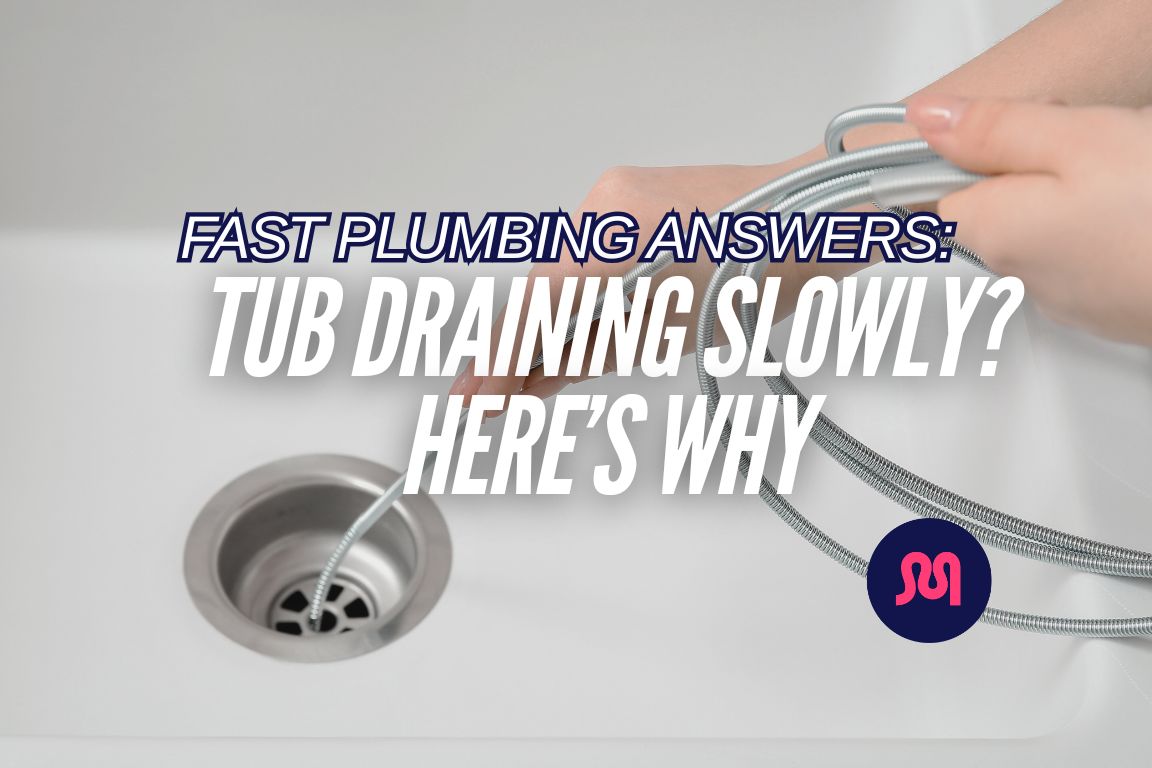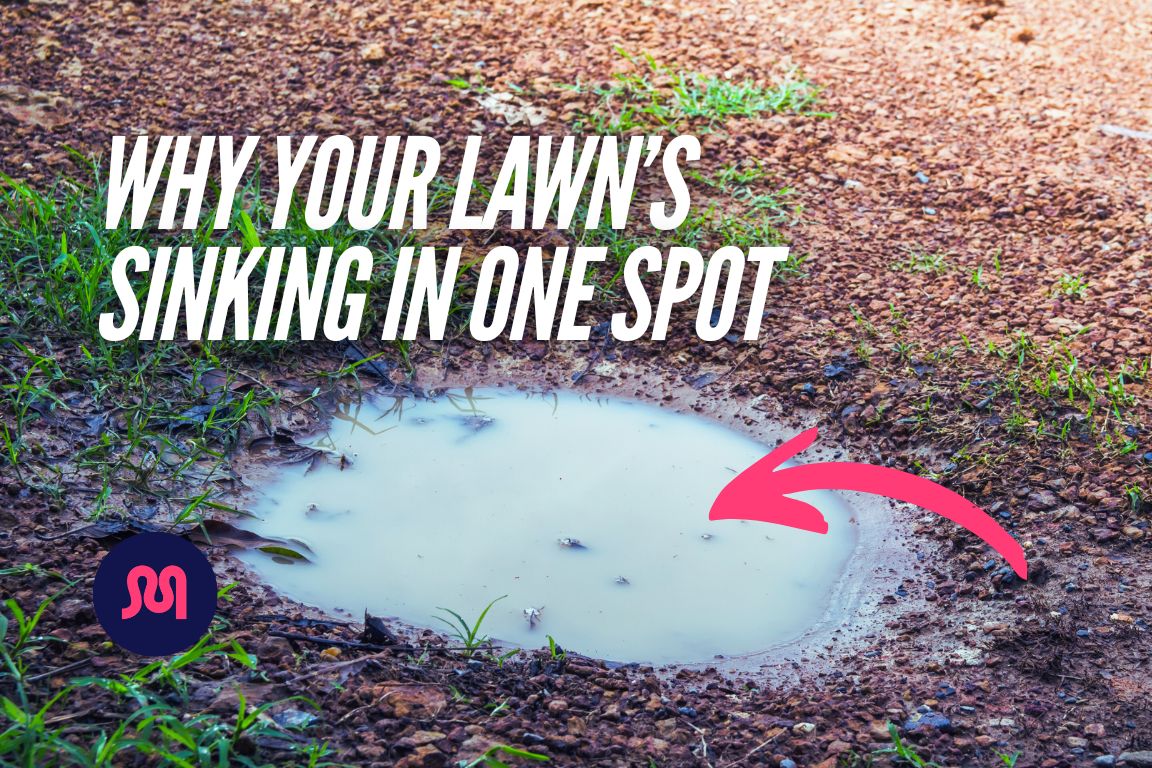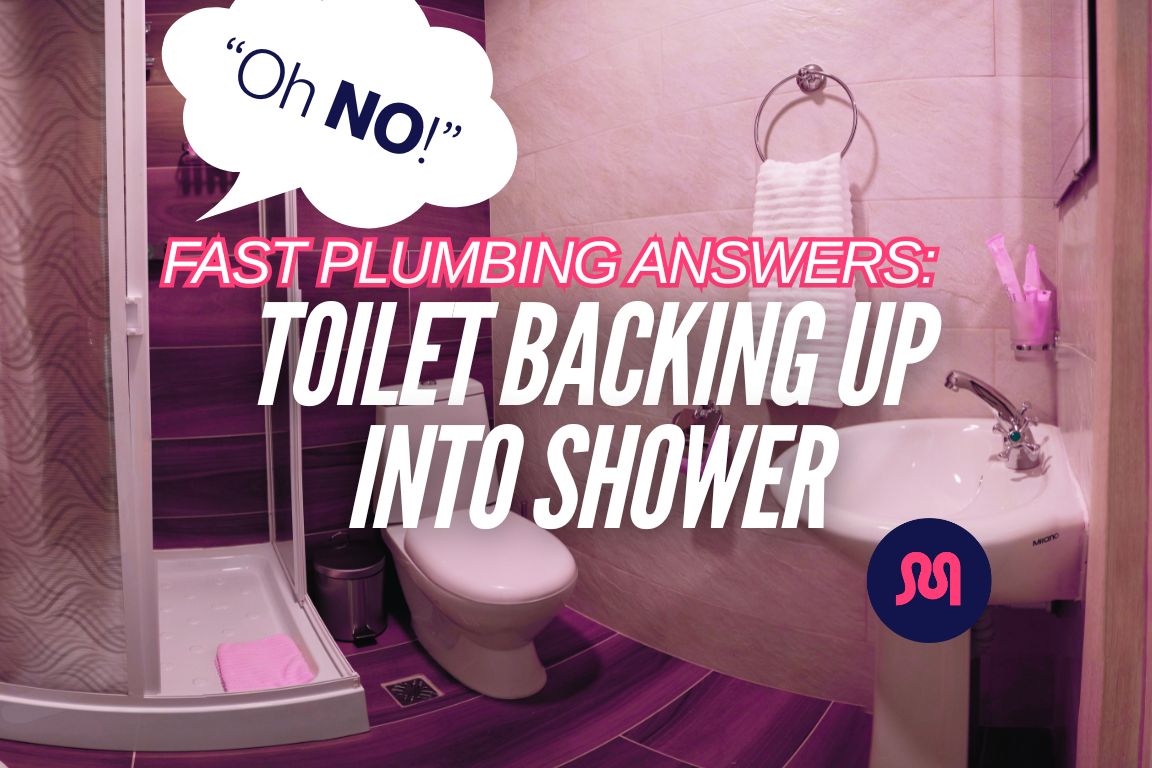Fast Plumbing Answers: Cracks in Slab Foundation
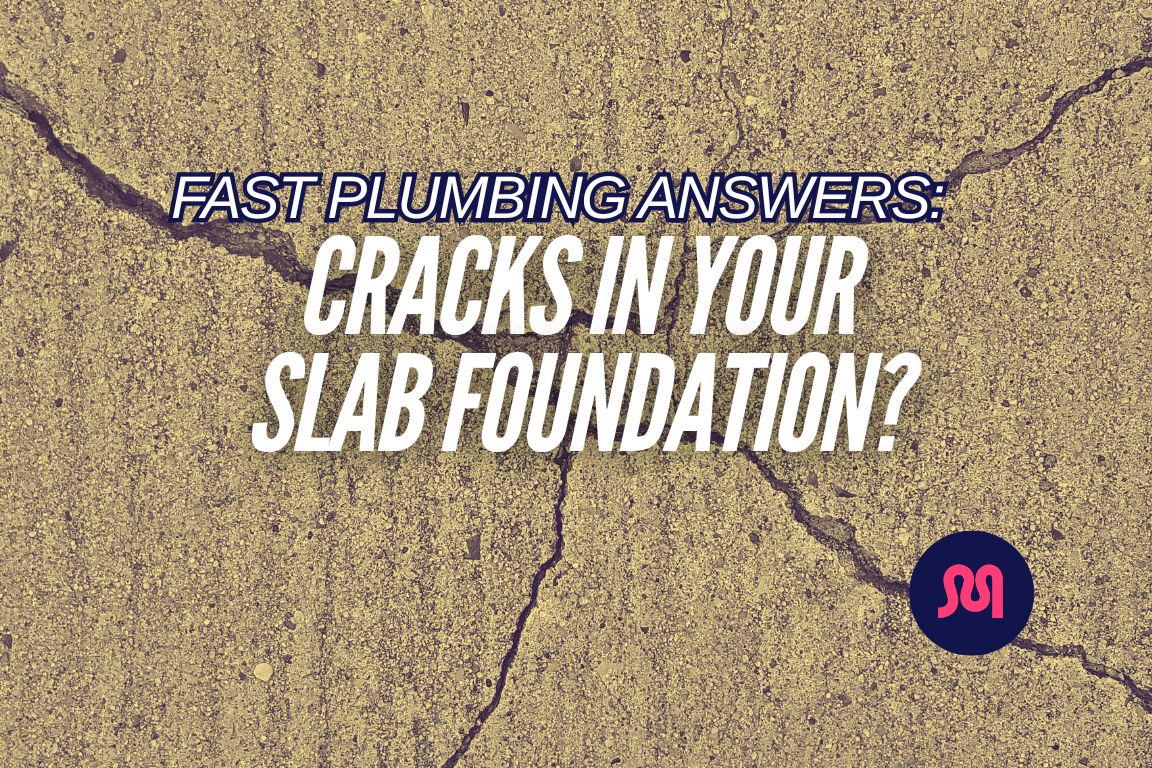
table of contents
table of contents
You’re watering the plants or mowing the lawn, and you notice cracks forming in your concrete slab foundation. The worst case scenarios start filling your head: is your house going to be okay? Are there burst pipes under your slab? How did this happen?
Don’t worry- we’ll answer all your questions in 2 minutes or less.
We’re Mother, a Dallas-Fort Worth plumbing company that provides dependable, hassle-free modern plumbing for homeowners who value quality. Call us 7 days a week for expert slab leak detection and repair services, and solutions guaranteed to last.
{{slab-leak-repair="/services/slab-leak-repair"}}
Cracks in Your Foundation Are Never “Too Small to Matter”
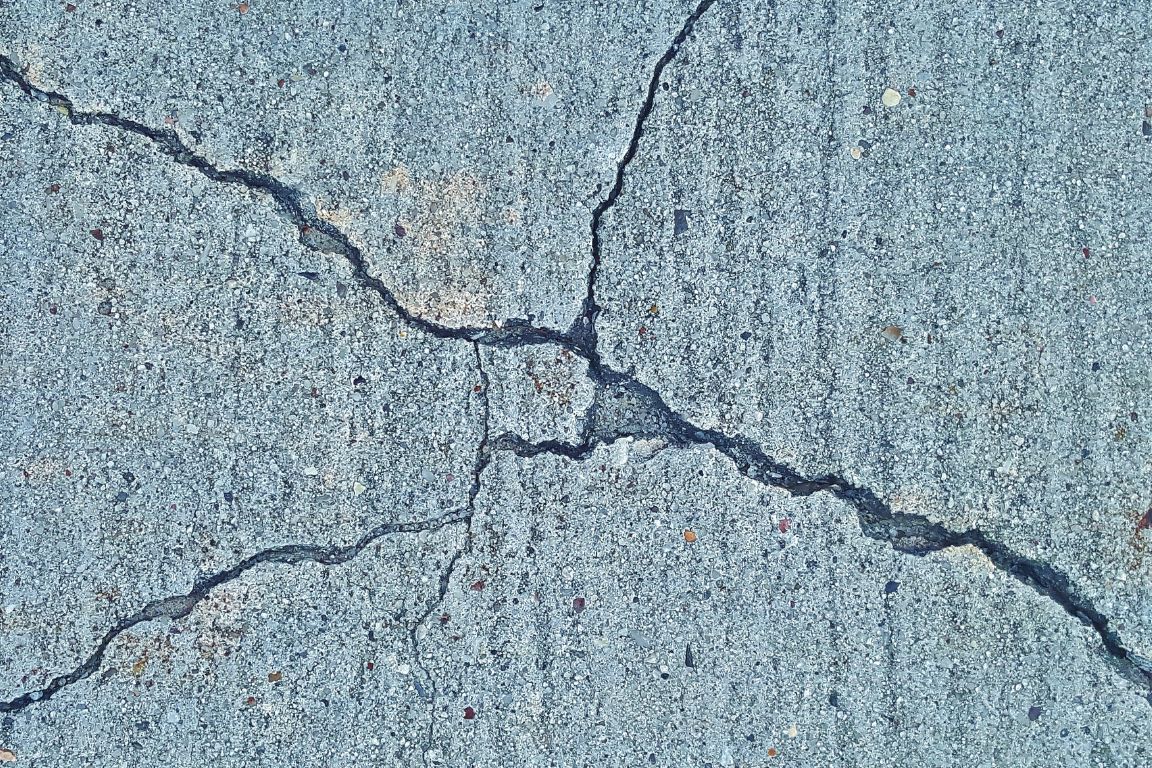
We notice a growing number of homeowners searching for information about the size of the crack in their slab foundation- and when it’s time to worry.
This is flawed logic. The size of the crack in your slab doesn’t matter- the fact it exists is what matters.
Our Master Plumber Dillon Ashton explains there’s no such thing as a crack in your slab foundation that’s “small enough to ignore”.
“Hairline cracks in your slab foundation may seem minor, but they often signal a hidden slab leak,” Dillon says.
The Most Common Culprit: A Hidden Pipe Leak Near Your Slab
The most likely cause for cracks in your concrete slab is an underground pipe leak that’s near or under your foundation.
“Water from a leaking pipe underneath the concrete slowly washes away the soil around your foundation,” Dillon notes. “This causes the slab to settle unevenly and begin to crack.”
Slab leaks are incredibly common, especially in regions with expansive soil like North Texas. In Dallas, our plumbers repair 4-5 slab leaks every week - especially in rainy seasons like spring.
6 accompanying symptoms that indicate a leaky pipe
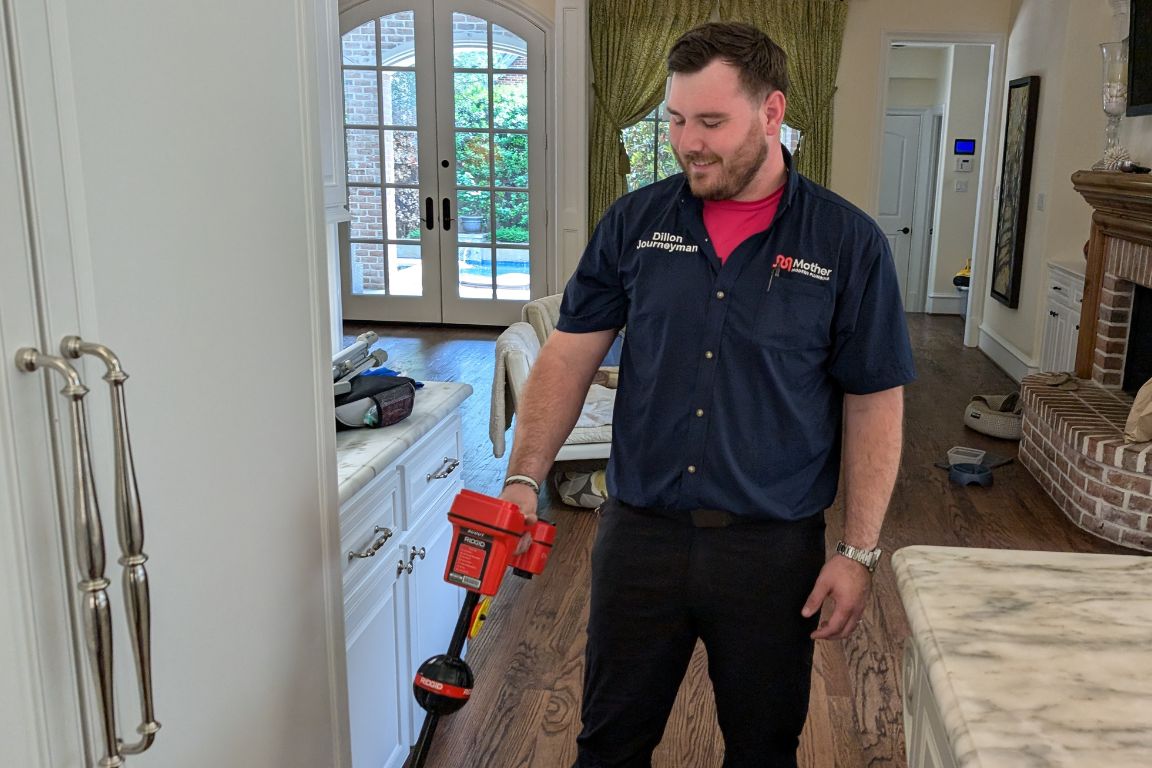
Experienced plumbers like Dillon seek out 6 tell-tale indicators to help diagnose a pipe leak underground near your slab.
- Unexplained water bill increases: There’s a spike in your water bill, you haven’t used more water than usual, and there aren’t any leaks in your walls.
- Warm spots on the floor: A classic indicator of a hot water pipe leak near the slab.
- Musty smells in floorboards: Mold, mildew and musty smells form in and under your floorboards.
- Water pooling near the foundation: Stress from waterlogged soil causes pinhole leaks in your freshwater main line.
- Water meter movement: If your water meter spins when all water is shut off to your home, it’s a sign of a slab leak.
- Damp cracks in your walls: Specifically, near the bottoms of your walls- the lower the crack is, the more likely it’s caused by an underground leak.
If It’s Not a Leak: 2 Less Common Causes of a Cracked Slab
First of all: congratulations. Avoiding a slab leak is really good news.
If your plumber can’t identify any signs of a hidden pipe leak, it’s time to look for other potential causes. Here are 2 other specific reasons you might have a crack in your foundation:
Poor preparation and installation
Is your foundation brand new, or is your home less than 5 years old? Poorly executed slab foundations are quick to crack, especially in expansive soil.
- A bad concrete mix: Concrete naturally shrinks as it hardens. If your concrete isn’t properly mixed and formulated, it will immediately begin to fail.
- Poor property grading: If your property doesn’t slope sufficiently away from the foundation, it doesn’t drain. Retained water near the slab adds pressure.
- Poor subgrade preparation: If the subgrade under your foundation wasn’t laid and compacted correctly, shifting is bound to occur.
Environmental issues
Expansive soil, flooding and other local environmental factors place immense stress on your slab foundation.
- Clay-rich soil: Small particles in clay soil are quick to swell and shrink. This cycle places intense stress and causes frequent shifting around the slab.
- Flood-prone areas: Heavy rainfall creates waterlogged soil. When the water runs out of soil space to occupy, it seeks the pores and natural gaps in your concrete slab.
- Extreme temperature swings: Increased freeze-thaw events in your area create temperature swings your soil isn’t accustomed to. This adds to swell-shrink cycles.
- Intrusive tree roots: Mature tree roots don’t just penetrate underground pipes. They also attract groundwater away from the soil, causing shrinkage and cracking.
Call a Plumber ASAP If You See These 2 Crack Patterns
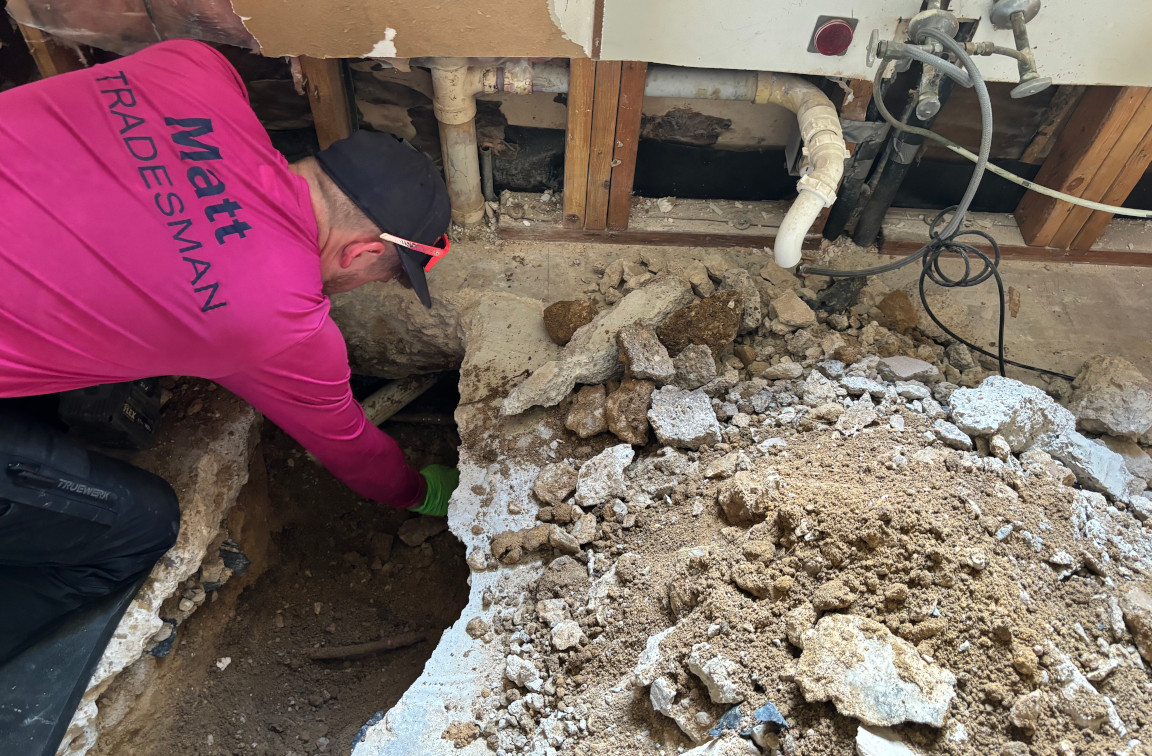
If you notice cracks in your foundation forming in either of these 2 troublesome patterns, call your trusted local plumber immediately:
- Widening horizontal cracks
- Stair-step cracks
Horizontal cracks indicate direct soil pressure on your slab. This is due to a repetitive cycle of swelling and shrinkage that place intense stress on your foundation. Horizontal cracks are a serious issue that, if left unchecked, frequently cause structural damage to your home.
Stair-step cracks follow the pattern of mortar blocks in your block foundation. These cracks occur when moisture seeps in between your blocks, forming a “zig-zag” line along the mortar.
Live in Dallas-Fort Worth? Call Mother 7 days a week at the first sign of a horizontal or stair-step crack in your foundation. We’ll have someone to your house fast.
Found a Cracked Slab? Here’s What to Do Immediately
Schedule yard leak detection services at the first sign of cracks in your foundation. Even if it’s not a burst pipe, ruling a slab leak out early saves homeowners from a 5-figure repair project.
“Catching a slab leak early is critical to avoiding major damage and expensive foundation repairs,” Dillon says.
Slab leak detection technology has grown significantly in recent years to include several no-dig, non-invasive options:
- Acoustic leak detection uses changes in sound wave frequency caused by underground water leaks to pinpoint their exact location.
- Electronic leak detection uses a combination of amplifiers, moisture meters and infrared thermal imaging to locate leaks underground.
- Plumbing camera inspections utilize a small, high-resolution camera on a flexible cable that’s inserted directly into your pipes for a live view of the issue.
The result: you’ll know whether or not you have a hidden leak quickly- and if you do, you’ll know exactly where it is and how to fix it.
Take control of your slab leak repair project! Compare your Dallas slab leak repair options in our freshly updated guide,
{{choose-the-best-dallas-slab-leak-repair-option-for-you="/blogs/choose-the-best-dallas-slab-leak-repair-option-for-you"}}
Need Fast Slab Leak Detection and Repair in Dallas?
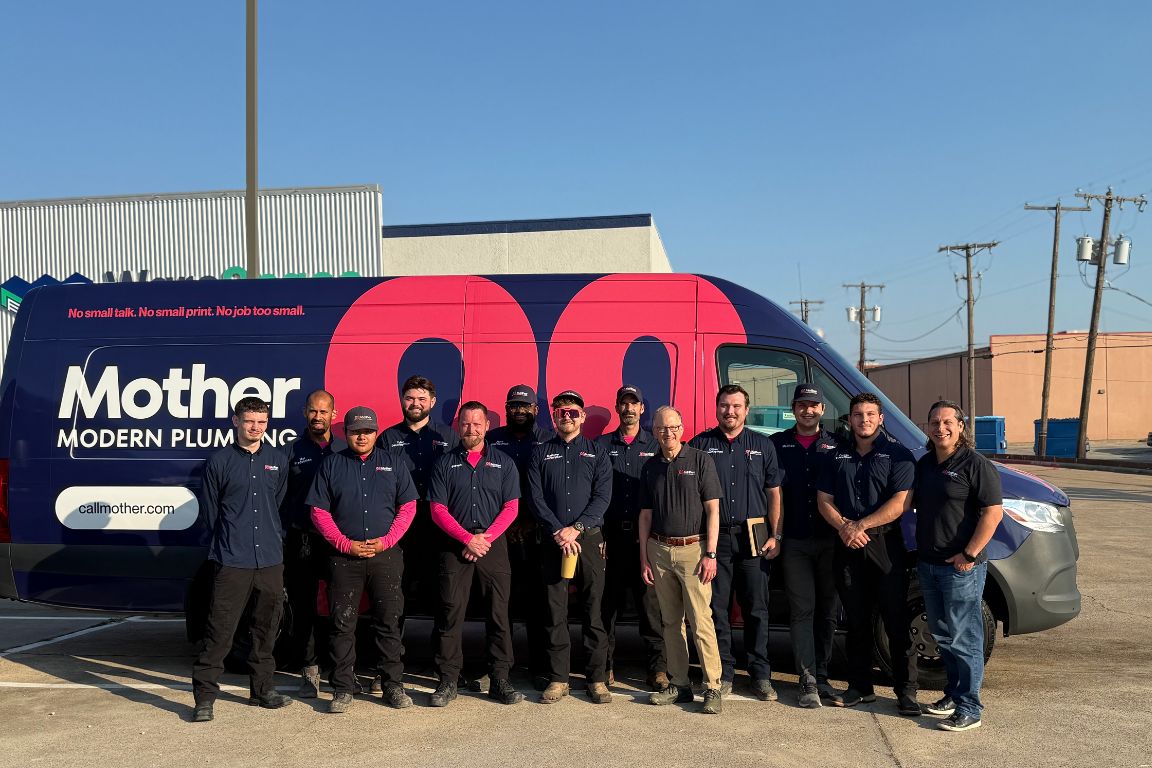
We sincerely hope you don’t have a slab leak. It’s an unpleasant thing to discover- but for the sake of your home’s structure (and your wallet), don’t ignore the warning signs.
Call your trusted plumber at the first sign of a crack in your foundation. Best case scenario, it’s not a pipe leak. Worst case scenario, we caught it extremely early and you’re going to save a huge chunk on repair costs.
Dallas homeowners trust Mother Modern Plumbing for fast, accurate slab leak detection and repair service. We bring a century of combined experience to every job- the only thing that matters is a secure foundation under your home, and peace of mind for your family.
{{slab-leak-repair="/services/slab-leak-repair"}}
Common Q’s about Water Leaks
Are slab leaks covered by homeowner’s insurance?
Homeowner's insurance companies don't love to cover leaks in or near your home's foundation. If you want your slab leak repair covered, you need to follow a precise set of steps to improve your odds of coverage.
Follow these 4 steps in order to increase the chances your slab leak is covered by insurance:
- Immediately contact your insurance provider in the event of a freshwater leak.
- Hire a master plumber for 2 key tests: water pressure testing and hydrostatic testing.
- Consult a structural engineer before and after plumbing repairs.
- File all necessary paperwork to your homeowner’s insurance.
How common are slab leaks?
It depends where you live. In most parts of America, slab leaks occur about once every 30 years. Dallas homes average one slab leak roughly every 15 years.
How do you locate a water leak under your slab?
The 2 best ways to locate a water leak under your concrete slab are acoustic leak detection and video camera inspection.
Acoustic detection uses sound to identify leak location. A camera inspection is needed if hydrostatic testing fails, or if acoustic detection is inconclusive.
How much does underground leak detection cost in Texas?
The average cost of professional water leak detection services in Texas is $500-$1,000. This cost depends on the quality of detection equipment used, the extent of your leak, and the experience level of your plumber.
Water leak detection prices in Dallas County and Tarrant County are slightly higher than the state average due to higher labor costs.


